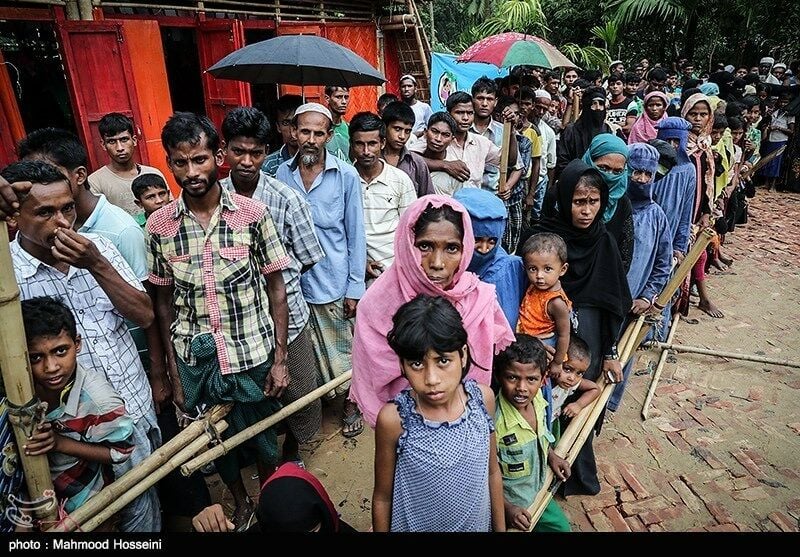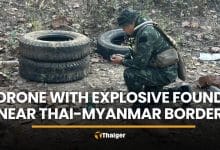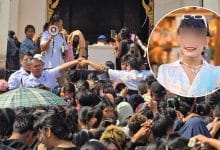US says Rohingya violence was ‘genocide’ as Asean envoy meets Myanmar junta leaders

US President Joe Biden has determined that the violence against the Rohingya minority committed by Myanmar’s military in 2017 amounted to genocide and crimes against humanity, a US official told Reuters on Sunday. The move comes as a special Asean envoy begins three days of visits with junta officials in Myanmar, aiming to begin a peace process.
The US Secretary of State Antony Blinken is expected to officially announce the decision to designate the military’s horrific actions as a genocide, in remarks at the Holocaust Museum in Washington today, where an exhibit on “Burma’s Path to Genocide” is on display under Myanmar’s former name.
More than 700,000 of the mostly Muslim Rohingya community have fled Buddhist-majority Myanmar since 2017, after the brutal military crackdown that’s now the subject of a genocide case at the UN’s highest court in The Hague.
Blinken is also expected to announce US$1 million in funding for the Independent Investigative Mechanism for Myanmar, a UN body in Geneva that’s currently gathering evidence for possible prosecutions in the future, according to Reuters.
During his visit to Malaysia last year, Blinken announced that the US was looking “very actively” at whether the treatment of the Rohingya might “constitute genocide.”
In 2018, the US State Department released a report detailing violence against the Rohingya in western Rakhine state as “extreme, large-scale, widespread, and seemingly geared toward both terrorising the population and driving out the Rohingya residents.”
The violence in Myanmar has forced nearly a million Rohingyan people to flee their homes and the United Nations has recommended that top military officials face genocide charges. But until now, the US had stopped short of declaring the atrocities from 2017, which include rape and mass killings, against the Muslim minority a genocide.
Democratic Sen. Jeff Merkley, a member of the Senate Foreign Relations Committee, said in a statement Sunday…
“I applaud the Biden administration for finally recognizing the atrocities committed against the Rohingya as genocide. While this determination is long overdue, it is nevertheless a powerful and critically important step in holding this brutal regime to account.”
The State Department has already placed sanctions on a number of officials form the Myanmar military for their roles in committing human rights abuses, including commander-in-chief Min Aung Hlaing.
According to Reuters, a genocide determination does not automatically unleash punitive action from the US. The US State Department has formally used the term “genocide” just six times since the Cold War to describe massacres in Darfur, Iraq, Rwanda and Bosnia, the Islamic State’s attacks on minorities including the Yazidis.
The US mostly recently used the term last year to condemn China’s treatment of Muslim minorities including the Uyghurs in the northwestern province on Xinjing.
China continues to deny claims of genocide, despite heavy accusations from the West, testimonials from Uyghurs themselves, leaked government documents and satellite imagery proving otherwise.
Meanwhile, a special envoy with representatives from Southeast Asian nations began meeting on Monday in Myanmar, with the goal of ending the ongoing conflict there, since a military coup seized power of the country in February last year.
The coup has sparked 13 months of nationwide strikes and protests. Fighting has also been ongoing between military forces and armed allies of Suu Kyi’s ousted government in the countryside.
But opposition groups say the Asean visit shows respect to the military rulers and disregard for the Burmese people, who elected Suu Kyi as their rightful president in November 2020.
Authorities in Cambodia, the chair of the Association of Southeast Asian Nations, have not divulged the details of the schedule of envoy Prak Sokhonn “to ensure the smooth process of the visit,” the Bangkok Post reported.
Today state media in Myanmar broadcast footage of the Asean envoy meeting with junta leader Min Aung Hlaing. Last year the country’s military generals reportedly agree to a peace process, which the envoy aims to finally start in motion over the next three days.
The lack of progress has frustrated some Asean members, who have prohibited the junta officials from attending their summits, in a sign of mutual disrespect.
Latest Thailand News
Follow The Thaiger on Google News:


























